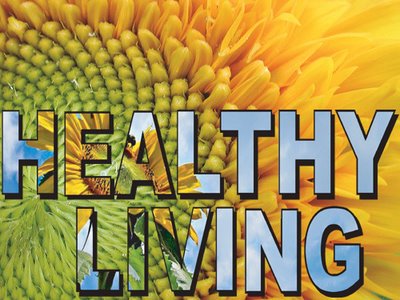6 Nutrients That Boost Weight Loss
Make your body a calorie-burning machine
by Lynn Grieger, RD, CDE
In our weight-obsessed society, women often pay more attention to the number of calories they eat than to the nutrients associated with those calories. But did you know a low-calorie diet that's also low in nutrients might actually hinder your weight loss efforts? If you miss out on essential vitamins, minerals and other nutrients, your body doesn't function at an optimal level.
In fact, research published in the American Journal of Clinical Nutrition in March 2003 shows a strong relationship between low intake of essential nutrients and increased BMI and waist circumference.
If you feel tired, have a lack of energy or focus, or experience a decrease in sex drive, you may need to reevaluate your meal plan. We've rounded up a list of the nutrients most often lacking in women's diets, along with easy tips to boost your intake of delicious foods that contain these nutrients. Eating well not only makes you feel vibrant and energetic — it can also give you the mental push you need to lose weight.
 Fiber
FiberWith all the emphasis on fiber intake, women still get only 15 grams per day, compared to the recommended 25 grams. Low fiber intake is associated with increased risk of heart disease — the number one killer of women — as well as some types of cancer and type 2 diabetes. Eating more fiber will help you feel full and help you stay away from candy bars. Consume more fruit, veggies, higher-fiber cereals and legumes each day to boost your fiber intake. To avoid uncomfortable side effects such as gas and bloating, increase fiber gradually and drink more water throughout the day
Omega-3 fatty acids
A diet consistently low in omega-3 fatty acids can lead to dry skin, increased risk of heart disease and even depression. In the pursuit of weight loss, most women avoid any food associated with the word "fat." But eating foods high in omega-3 fatty acids will help you feel better, look younger and stay healthier — and they won't cause you to gain weight, as long as you eat reasonable portions. In fact, including fat in your meals helps increase the satiety value of each meal, making you feel full longer. Choose salmon, sardines and ground flaxseeds to boost your omega-3 fatty acid intake.
Folic acid
Women get only about half of the recommended 400 micrograms of folic acid or folate each day — even though it's now added to grain products such as breads and cereals. Blame it on the low-carb craze, but whatever the reason, women routinely miss out on this essential nutrient, which is associated with decreased risk of heart disease and colon cancer. Consuming too little folic acid during pregnancy can also be linked to neurological defects in the baby. Since your need for folic acid goes up to 600 micrograms per day from the moment you conceive, it's recommended that all women of childbearing age get adequate daily amounts. Because eating fortified breakfast cereal is an easy way to get both folic acid and fiber — and research consistently shows that women who eat breakfast weigh less than breakfast skippers — use this weight-loss-savvy strategy: Pour a bowl of Raisin Bran, Fiber One or Total to start your day.
Calcium
Even though there's been a big push to get people of all ages to consume more calcium, women still get only about half of their daily requirement of 1,000 milligrams per day. Not only does calcium help make bones strong and dense to prevent osteoporosis, but it also helps regulate blood pressure. Some studies show that getting enough calcium can help you shed pounds to boot. At only 80 calories per cup, skim milk gives you calcium, protein, strong bones and the potential for weight loss.
Vitamin D
This vitamin goes hand in hand with calcium because dairy products in the U.S. are fortified with it to improve calcium absorption. Vitamin D is also hailed for helping to prevent numerous chronic diseases, including diabetes, various cancers, multiple sclerosis, rheumatoid arthritis and hypertension. But most women get less than a third of their daily need of 200 IU per day. Part of the blame rests on sunscreen: By absorbing ultraviolet sunlight, our skin can manufacture vitamin D. But slather on sunscreen, and the process doesn't work. The only foods naturally high in vitamin D are cod liver oil and some types of fish. But don't despair — add vitamin D to your list of reasons to drink more milk, both for the health benefits and the increased weight loss potential.
Iron
Are you too tired to drag yourself to the gym, much less complete a workout? If so, you may suffer from iron-deficiency anemia. One in five women has low levels of iron, which decreases the ability of red blood cells to carry oxygen throughout the body. Since each cell requires oxygen for energy, if you don't have enough oxygen transported to the cells, they won't be able to do their job and you'll feel exhausted. Use a three-pronged approach to prevent iron deficiency and get your recommended 18 milligrams per day. Step one: Choose an iron-rich food at every meal, such as mussels, clams, beef, shrimp, turkey, enriched breakfast cereal or pumpkin seeds. Step two: Take a daily multivitamin that contains iron. Step three: Vitamin C increases the body's absorption of iron, so include a glass of orange juice, half a grapefruit or a salad containing tomatoes and green peppers with your iron-rich meals. With more energy, you'll be able to pump up your workouts, burn more calories and watch your waistline dwindle.
